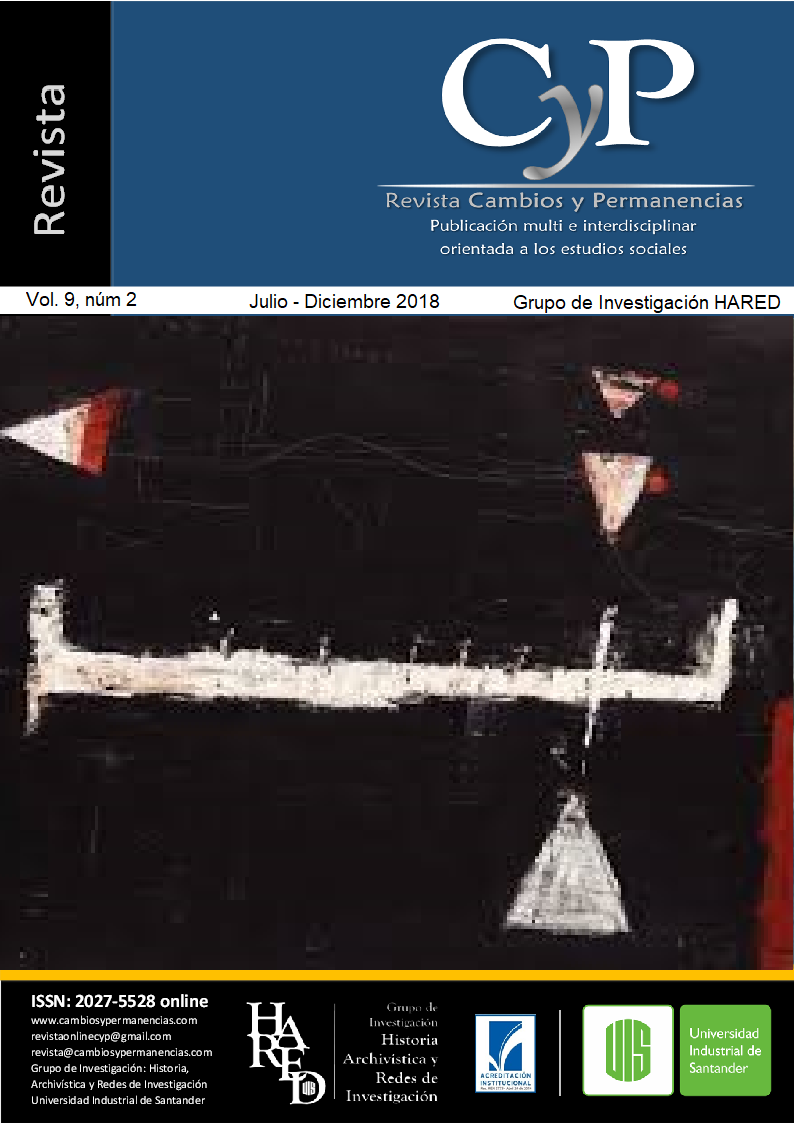Published 2018-12-20
Keywords
- Competencies,
- Curriculum,
- Virtual education,
- Knowledge,
- Information Technology and Communication
How to Cite
Abstract
The knowledge society is generating changes in the training processes of university students. The new technologies are transforming the ecology of the classroom, which is why the Autonomous University of Chihuahua offers virtually the basic university subjects through the Moodle platform, with the purpose of facilitating learning in collaboration with others. In addition, being asynchronous, the student has control over what he learns, how he learns it and when he learns it. So it was important to build a state of the art about virtuality, through a documentary research that was developed applying hermeneutics and heuristics. It was carried out through bibliographic research of articles and institutional documents that provide this approach to the relevant information, to the theoretical conception of the current educational model. The findings and discussion focused on coincidences in the educational models of the institutions that should have a humanistic, innovative and relevant sense in relation to the needs that the country requires. From this perspective, it is at the university where students must be trained to face the challenges that they will surely challenge when they pursue their career.
Downloads
References
2. Delgado, P. (2018). Las Aulas del Futuro según Microsoft. Observatorio de Innovación Educativa. Instituto Tecnológico de Monterrey. Recuperado de: https://observatorio.itesm.mx/edu-news/las-aulas-del-futuro-segun-microsoft?utm_source=Observatorio+de+Innovaci%C3%B3n+Educativa&utm_campaign=fb9456eed6-EMAIL_CAMPAIGN_2017_02_24_COPY_01&utm_medium=email&utm_term=0_667d8bc4cf-fb9456eed6-235882893
3. Encuentro Iberoamericano de Formación Docente. “Entre orugas y mariposas” Conferencias. (2002). Universidad Pedagógica Nacional. Colombia. Editorial Ápice.
4. García-Barreda, A. (2013). El Aula Inversa: Cambiando la respuesta a las necesidades de los estudiantes. Revista de la Asociación de Inspectores de Educación de España. Revista No. 19. España.
5. Garrido, C. M. C. (2009). Web 2.0.: el uso de la web en la sociedad del conocimiento Investigación e implicaciones educativas. Cuadernos Unimetanos, (20), 14-15.
6. Gimeno Sacristán, J. (2010). Saberes e incertidumbres sobre el currículum. Ediciones Morata.
7. Katayama, R. (2014). Introducción a la investigación cualitativa: fundamentos, métodos, estrategias y técnicas. Lima: Universidad Inca Garcilazo de la Vega. Fondo Editorial.
8. Marco de competencias de los docentes en materia de TIC de la UNESCO. (2008). Las TIC en la educación. Recuperado de ww.unesco.org/new/es/unesco/themes/icts/teacher-education/unesco-ict-competency-framework-for-teachers/
9. Moreira-Segura, C., & Delgadillo-Espinoza, B. (2015). La virtualidad en los procesos educativos: reflexiones teóricas sobre su implementación. Revista Tecnología en Marcha, 28(1), 121-129.
10. Modelo Educativo de la Universidad Autónoma de Nuevo León. (2015).
11. Muñoz, R. F. (2003). Competencias profesionales del docente en la sociedad del siglo XXI. In Organización y gestión educativa: Revista del Fórum Europeo de Administradores de la Educación (Vol. 11, No. 1, pp. 4-7). Ciss Praxis.
12. Narro Robles, José; Martuscelli Quintana, Jaime y Barzana García, Eduardo (Coord.).(2012). Plan de diez años para desarrollar el Sistema Educativo Nacional. [En línea]. México: Dirección General de Publicaciones y Fomento Editorial, UNAM http://www.planeducativonacional.unam.mx
13. Parra Acosta, H. (2006). El modelo educativo por competencias centrado en el aprendizaje y sus implicaciones en la formación integral del estudiante universitario. 6to. Congreso Internacional “Retos y expectativas de la Universidad”.
14. Pina, F. H., Clares, P. M., Juárez, M. M., y Hernández, F. M. (2009). Aprendizaje y competencias: Una nueva mirada. Revista española de orientación y psicopedagogía, 20(3), 312-319.
15. Programa Sectorial de Educación. (2013). Secretaría de Educación Pública. México.
16. Silvio, J., Rama, C., & Lago, M. T. (2004). La educación superior virtual en América Latina y el Caribe. México, DF: Unión de Universidades de América Latina.
17. Tobón, S. (2008). Formación basada en competencias en la Educación Superior: El enfoque Complejo. Bogotá, Col. Grupo CIFE.
18. Universidad Autónoma de Chihuahua. (2009). Modelo por competencias. México. Zah. J. EduTrends. 2015.


